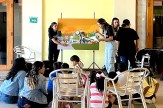Third annual bell hooks symposium, ‘Black Feminist Worldmaking,’ helps kick off Black History Month at Northeastern
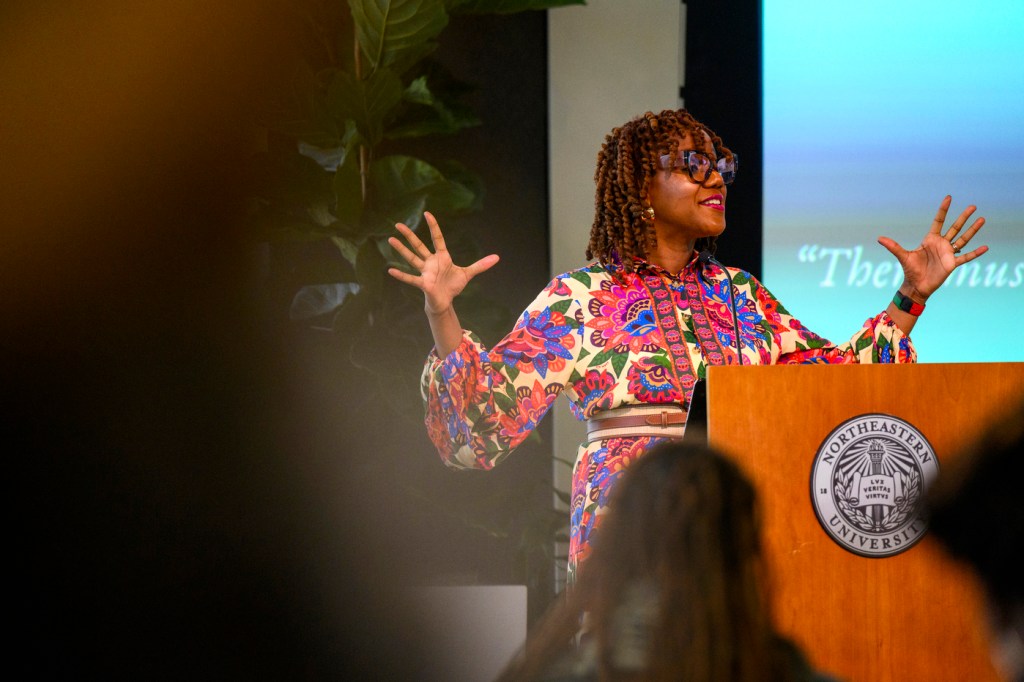
“There is nothing new under the sun, but there are new suns.”
With this quote from Octavia Butler, an American science fiction writer and a Black feminist, Régine Michelle Jean-Charles opened the third annual bell hooks symposium at Northeastern.
Friday’s symposium helped kick off Black History Month across the university’s global campus network.
It also provided an opportunity for organizers, speakers and guests to spend the day looking at “other suns,” finding hope and imagining a different world, said Jean-Charles, director of Africana Studies at Northeastern, dean’s professor of culture and social justice, and professor of women’s, gender and sexuality studies.
This year’s symposium theme, “Black Feminist Worldmaking,” was conceived by AK Wright, the inaugural post-doctoral Black feminism fellow of the Africana Studies program.
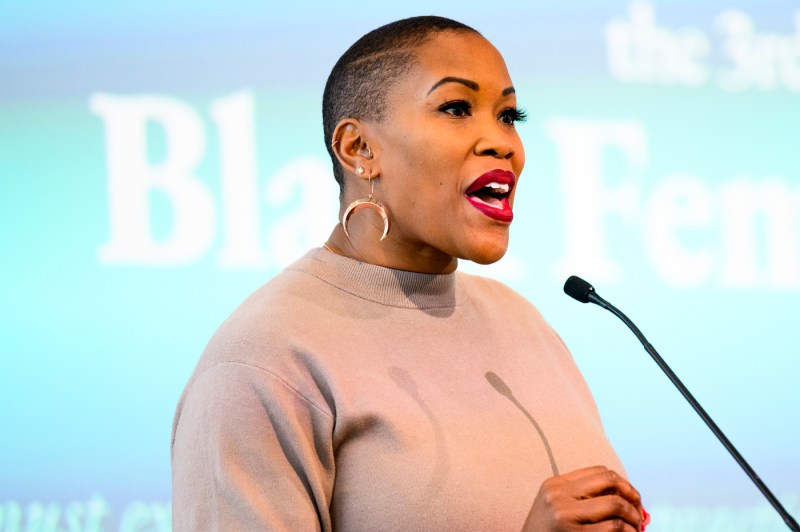
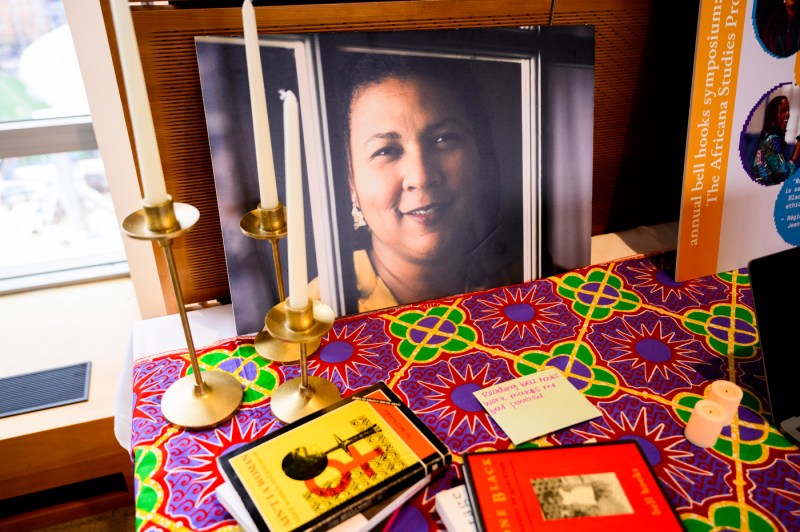
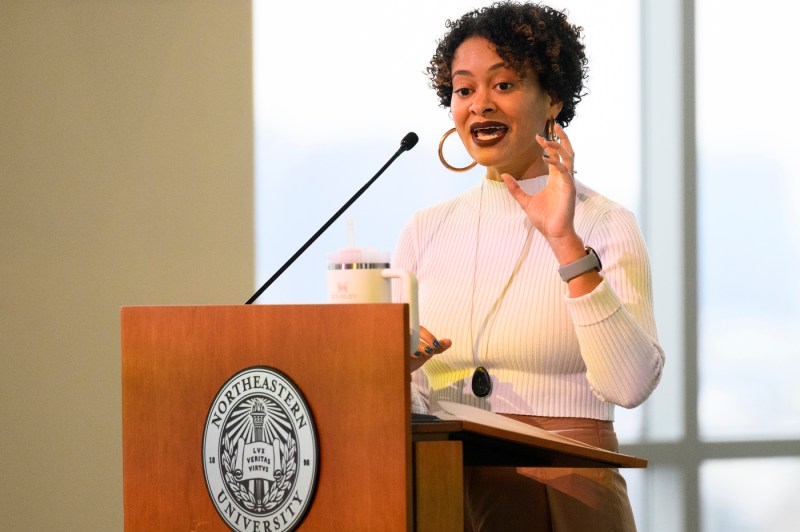
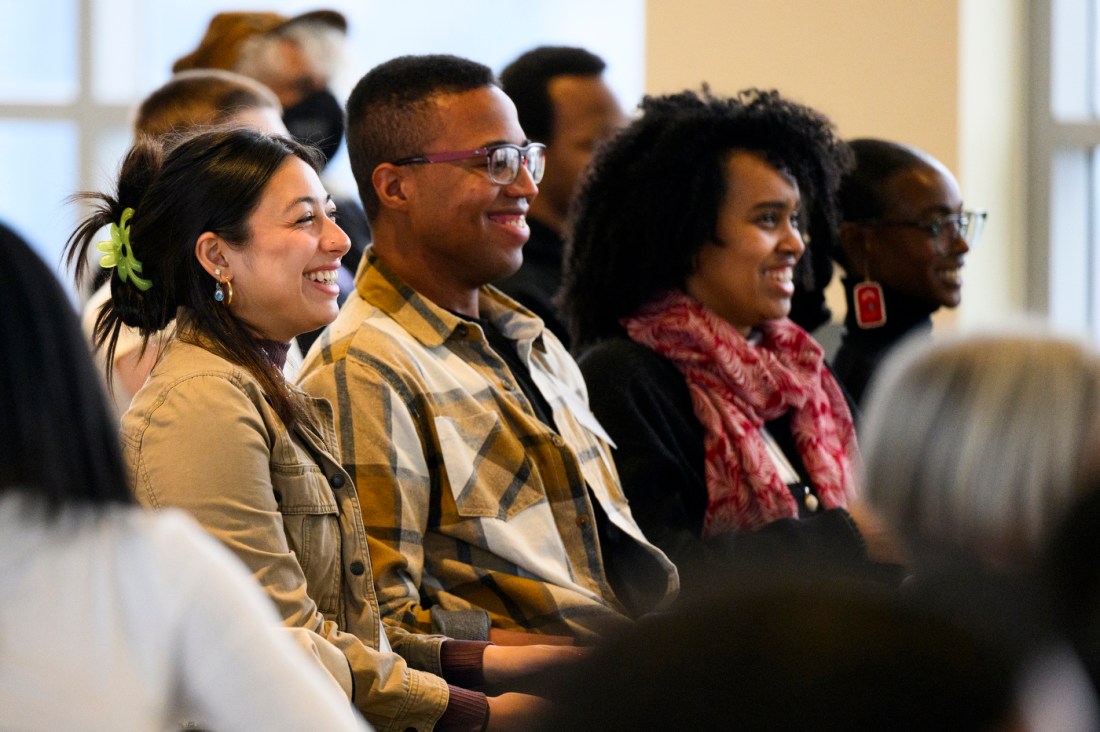
Wright said it’s important to look at what technology and tools Black feminists need to build new worlds.
“We dive into the mess of digital worlds and speculative sites as areas for liberatory practices, understanding them as both limiting and groundbreaking, and everything in between,” Wright said.
The symposium featured two panels that included Black feminists, scholars, artists, writers and Northeastern students, whose work is focused on history, race, gender and culture.
The panelists discussed the impact of digital technologies and AI on the lives of Black people. Other topics included the digital spaces Black people have claimed online, how they’ve fostered communal conversations, and how technology can be used to carve out spaces on social media platforms.
The conversation repeatedly touched upon experiences of past and present Black feminists in academia and classrooms as locations of possibility and “liberatory pedagogy,” as Jean-Charles put it.
“We need to understand we’re not in charge of the university in the way I’m in charge in my house, but we do hold power in those spaces to shift dynamics in really valuable ways,” said the keynote speaker Catherine Knight Steele, assistant professor of communication at the University of Maryland.
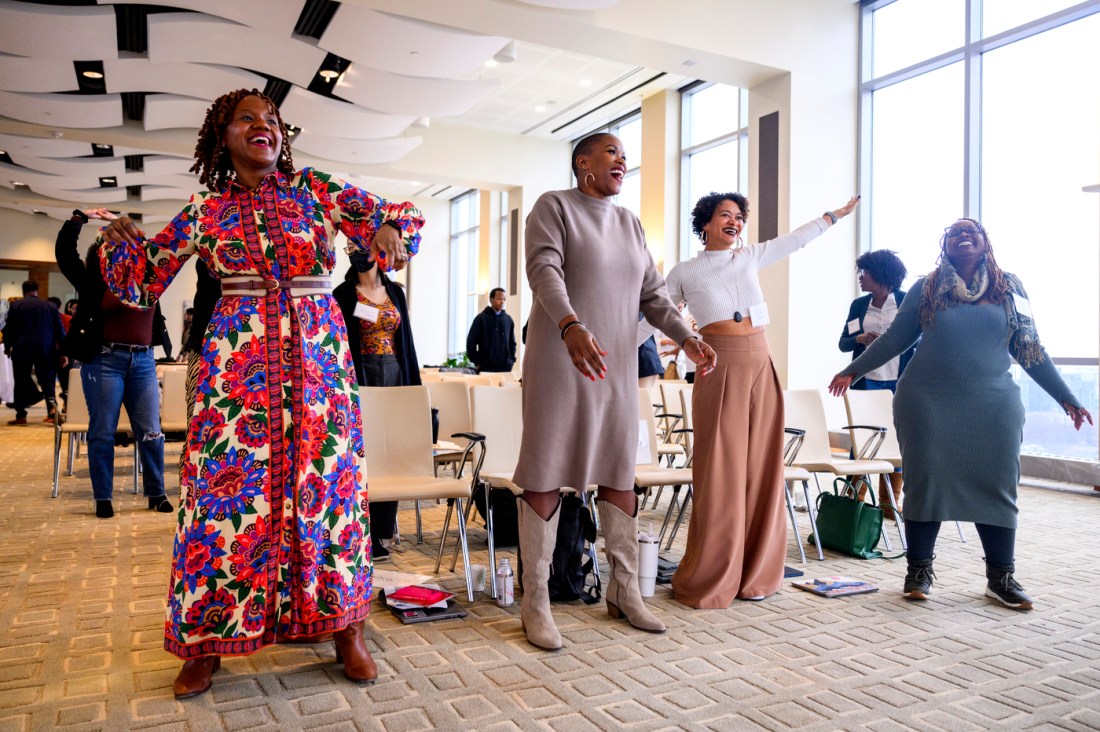
“When we have the capacity to create spaces, like labs, centers and even classrooms, that we have been granted this position of authority, we’re in this small space where we can create a little bit different of a world,” continued Steele, director of the Black Communication and Technology lab, funded by the Andrew W. Mellon Foundation.
Nicole Aljoe, professor of English and Africana studies at Northeastern, explained how using digital tools to analyze archives has helped uncover Black voices that were previously dismissed or silenced.
“My goal is that this work is inclusive, this work is communal, in addition to challenging the status quo, white supremacist, and patriarchy,” Aljoe said.
She shared several projects that looked at 18th and 19th century archives from Boston and London, and told the audience how evidence and clues had been found, but ignored by academics.
Featured Posts
“When you look at these archival documents through a much more inclusive lens, then you see something completely different,” Aljoe said.
For example, the project titled, “Early Black Boston Digital Almanac,” revealed images and dynamic stories of Black Bostonians in the 1800s to 1900s. As a result, Aljoe and her team have been working with the Boston Public Schools’ faculty to bring this knowledge to classrooms and develop curriculum materials.
In another project, Aljoe and other participants of the “Mapping Black London” research team analyzed records and letters of Ignatius Sancho that offered a unique glimpse into the vivid Black London of the 18th century.
When this information was turned into data and put on the map of London, it became obvious that the St Giles neighborhood had a significant presence of Black people, despite contemporary historians arguing that it wasn’t a historically Black community.
In the next couple of months, Aljoe’s team will reveal a new exhibit showcasing a number of Black voices of enslaved people in the Caribbean.
Jaidan Innis is a Northeastern undergraduate student pursuing a combined degree in media and screen studies and Africana Studies. A young voice among the symposiasts, she gave an intimate tribute to bell hooks and other Black feminists, speaking about how they changed her perception of the world.
Innis shared what the ability to write means to her.
“I have never been one to express myself through speaking,” she said. “Instead, these words live inside me only released by my hand. I retreat inside myself where I have resided obscurely and immeasurably. A thousand lives stacked on top of my stomach threatening to spill out. I’m rudely alive, so I must speak. I must laugh. I must write.”
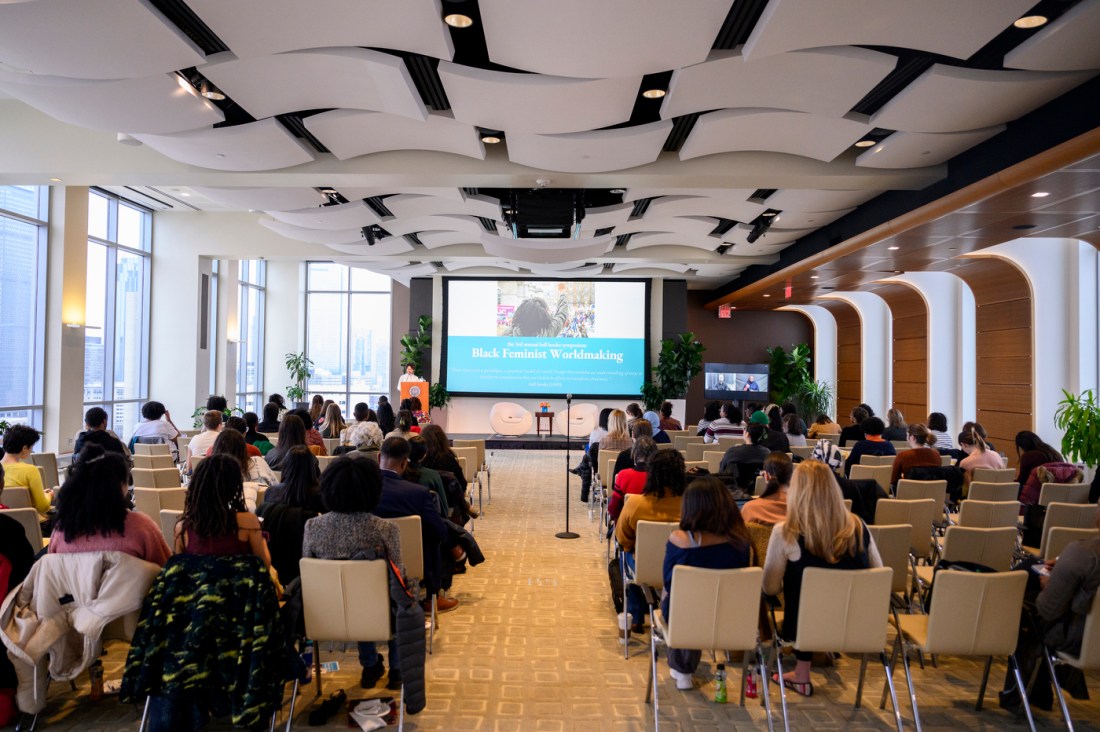
As she grew as a writer, Innis said she began to understand how words helped her and others cope with personal and world issues. Writing also taught her to envision a future where that pain and turbulence no longer exists.
Writing and poetry, Innis said, allow her to imagine what comes after — “the joy, the light.” She shared with the audience her poem titled “Black Joy.”
Black joy will find the most fertile ground. You have tried to bury me but I am not dead, I am the seed. I am not a casualty of the storm. I am the blossom that rises defiantly through the cracks in the pavement. I am the mighty oak.








